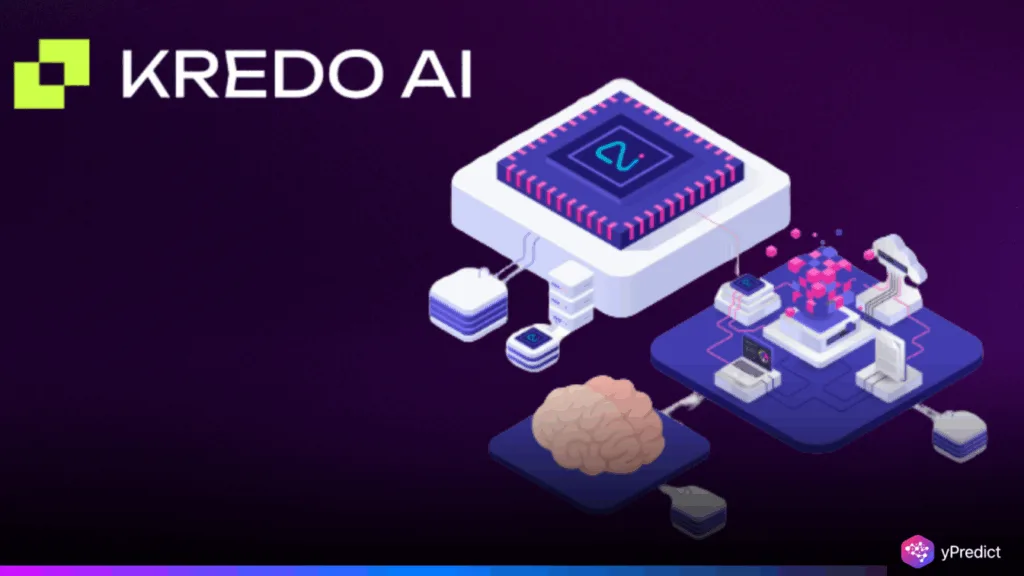
KREDO AI has introduced a reputation scoring system for Decentralized Finance (DeFi) that evaluates AI agents and participants using on-chain data. It measures accuracy, consistency, and alignment with blockchain outcomes, addressing the lack of traditional trust signals in decentralized ecosystems. The system is flexible such that developers can use it to determine thresholds and select desired sources of data, through which customized trust structures come about. The preliminary studies indicate that the system has the potential to increase liquidity, strengthen conditions within lending, and raise the efficiency of DAO governance. There are still concerns, however, particularly over the risks of data manipulation in systems such as blockchains that are transparent.
Mechanics of the Scoring System and Data Evaluation Methods
KREDO AI’s scoring system analyzes the reliability of AI agents and human actors within DeFi by evaluating real-time and historical on-chain activity. It draws data from 40 blockchain networks, applying three main evaluation models: temporal scoring, source-aware weighting, and on-chain alignment.
Temporal scoring focuses on recent behavior and consistency. Predictive success is tracked over time, with higher weight given to sustained accuracy. Source-aware weighting ranks inputs based on origin trustworthiness, and data verified through on-chain records is prioritized, while unverifiable or off-chain claims receive lower credibility. Onchain alignment cross-checks claims against actual blockchain outcomes, ensuring the reputation score reflects verifiable results.
Together, these mechanisms create a dynamic, real-time metric for measuring credibility. Rather than relying on one-time evaluations, KREDO’s approach adapts over time. An AI agent that consistently predicts liquidity shifts correctly will build a stronger score, while the system filters out erratic or low-confidence contributors. The scoring model integrates smoothly into the existing DeFi workflow, reinforcing systems that are otherwise vulnerable to manipulation and inconsistency. By using performance-based assessment and public blockchain records, the system brings objectivity into decentralized reputation, an essential layer of infrastructure for AI-led DeFi.
Integration, Customization, and Use Case Applications in DeFi
KREDO AI offers a lightweight API integration that allows protocols and agents to fetch reputation scores in real time. This eliminates the need for repeated inference runs or complex modeling, reducing computational overhead. Its strength lies in customization. Developers can define scoring policies specific to their use case. For example, requiring a minimum score of 0.85, limiting data sources to on-chain-only feeds, or penalizing conflicting inputs. These parameters give platforms tight control over who or what gets access to key DeFi services.
The system’s modularity makes it applicable across lending, governance, insurance, and automated market-making. In lending, a borrower with a high score might unlock lower interest rates. In governance, DAOs can assign voting weights based on historical proposal accuracy or trust scores. For insurance providers, smart contracts could dynamically price coverage based on an agent’s reputation.
This design enables users to price risk more effectively, enhancing the efficiency of capital deployment across protocols. The system particularly suits AI-led workflows, where agents make decisions or execute trades. By attaching a trust layer, KREDO enables these agents to interact within DeFi more responsibly. Reducing the risks of manipulation or unreliability. The score becomes a reputational passport, allowing access to protocols based on proven performance.
Reputation as a Trust Layer for Scalable DeFi
KREDO AI is laying foundational infrastructure for trust in AI-driven decentralized systems. Its on-chain reputation model brings transparency, accountability, and security to interactions that previously lacked evaluative frameworks. By offering scalable, flexible integration, it opens the door for more responsible and efficient DeFi applications, from lending to governance. Although data manipulation risk cannot be considered low in the case of Oracle vulnerability and transparency-based exploitation, alignment mechanisms in KREDO offer valuable mitigation. With AI agents becoming increasingly present in the on-chain activity, platforms such as one of KREDO will most likely be instrumental in terms of sustaining trust.






